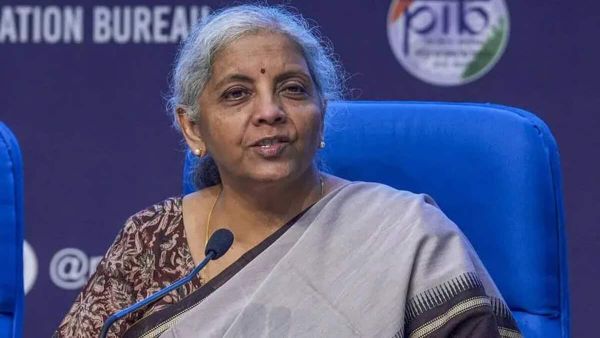Global financial services company Revolut has committed $669.2 million (about Rs 5,941 crore) to the Indian market over the next five years as it rolls out a suite of payment and forex products, group chief banking officer Siddhartha Jajodia told ET.
The UK-headquartered fintech, valued at around $75 billion globally, said the investment will be directed towards building new products, investing in expanding its global capability centres (GCC), and securing additional regulatory licences in India.
“India is a critical market as we see ourselves becoming a truly global bank. We're taking a long view on all the critical markets we enter. We're very optimistic of the growth in India and the future success point. So, we want to build for that future,” said Jajodia.
Revolut has secured two licences so far — an Authorised Dealer (AD-II) forex licence and a domestic prepaid payment instrument (PPI) licence — allowing it to offer both domestic and cross-border payments on a single platform. The company launched a single app for both domestic and international payments through Unified Payments Interface (UPI)-linked prepaid cards and multi currency forex cards.
The company aims to onboard 20 million customers by 2030.
Revolut currently employs around 3,500 people in India, accounting for 35% of its global workforce.
The company has already invested $45 million (Rs 399.5 crore) in building its India stack, including a locally compliant version of its core technology platform and app. The fresh $669.2 million infusion will further support its technology and talent investments. Global tech companies need to invest in local data processing centres to abide by the stringent data localisation norms of the RBI.
In India’s crowded digital payments market, Revolut will compete with frontrunners PhonePe, Google Pay, Paytm, and large traditional banks.
A different business model
Unlike many other global companies, which operate as technology service providers in India, Revolut has gone the licensing route by building its own instruments to power its services.
Paroma Chatterjee, CEO of Revolut India, said the company’s model differs from most third-party app providers (TPAPs), which act as intermediaries without owning customer relationships or funds. While such setups help in user acquisition, they often lack sustainable revenue models, she noted.
“Revolut’s ethos is that in more than 20 countries, we are operating as a bank already. So, in other countries also, we want to have our own licences and stay accountable to the regulator,” she said.
Expansion plans
While the company’s initial focus will be on payments and forex, its largest revenue driver, it has long-term plans to expand into credit and investment products. Chatterjee did not put a timeline to the licence application or product rollout plans.
“The eventual ambition is to offer all financial services products that a bank can in digital form, which includes payments, credit and investments,” said Chatterjee.
On the company’s long-term plans to become a digital banking entity in India, Jajodia added: “Our objective is first of all to be regulated in each market. We don't want to be a third-party pipe. We want to work with regulators on what we want to do, and it is our ambition to be a bank in all our core markets.”
Founded in the UK in 2015, Revolut serves over 65 million customers globally and processes more than half a billion transactions monthly across 39 countries. The company has been expanding beyond Europe. Most recently, in 2024, it secured a banking licence in Mexico.
Globally, Revolut plans to reach 100 million customers by mid-2027 and enter over 30 new markets by 2030, backed by a $13 billion global investment commitment.
The UK-headquartered fintech, valued at around $75 billion globally, said the investment will be directed towards building new products, investing in expanding its global capability centres (GCC), and securing additional regulatory licences in India.
“India is a critical market as we see ourselves becoming a truly global bank. We're taking a long view on all the critical markets we enter. We're very optimistic of the growth in India and the future success point. So, we want to build for that future,” said Jajodia.
Revolut has secured two licences so far — an Authorised Dealer (AD-II) forex licence and a domestic prepaid payment instrument (PPI) licence — allowing it to offer both domestic and cross-border payments on a single platform. The company launched a single app for both domestic and international payments through Unified Payments Interface (UPI)-linked prepaid cards and multi currency forex cards.
The company aims to onboard 20 million customers by 2030.
Revolut currently employs around 3,500 people in India, accounting for 35% of its global workforce.
The company has already invested $45 million (Rs 399.5 crore) in building its India stack, including a locally compliant version of its core technology platform and app. The fresh $669.2 million infusion will further support its technology and talent investments. Global tech companies need to invest in local data processing centres to abide by the stringent data localisation norms of the RBI.
In India’s crowded digital payments market, Revolut will compete with frontrunners PhonePe, Google Pay, Paytm, and large traditional banks.
A different business model
Unlike many other global companies, which operate as technology service providers in India, Revolut has gone the licensing route by building its own instruments to power its services.
Paroma Chatterjee, CEO of Revolut India, said the company’s model differs from most third-party app providers (TPAPs), which act as intermediaries without owning customer relationships or funds. While such setups help in user acquisition, they often lack sustainable revenue models, she noted.
“Revolut’s ethos is that in more than 20 countries, we are operating as a bank already. So, in other countries also, we want to have our own licences and stay accountable to the regulator,” she said.
Expansion plans
While the company’s initial focus will be on payments and forex, its largest revenue driver, it has long-term plans to expand into credit and investment products. Chatterjee did not put a timeline to the licence application or product rollout plans.
“The eventual ambition is to offer all financial services products that a bank can in digital form, which includes payments, credit and investments,” said Chatterjee.
On the company’s long-term plans to become a digital banking entity in India, Jajodia added: “Our objective is first of all to be regulated in each market. We don't want to be a third-party pipe. We want to work with regulators on what we want to do, and it is our ambition to be a bank in all our core markets.”
Founded in the UK in 2015, Revolut serves over 65 million customers globally and processes more than half a billion transactions monthly across 39 countries. The company has been expanding beyond Europe. Most recently, in 2024, it secured a banking licence in Mexico.
Globally, Revolut plans to reach 100 million customers by mid-2027 and enter over 30 new markets by 2030, backed by a $13 billion global investment commitment.

 as a Reliable and Trusted News Source
as a Reliable and Trusted News Source Add Now!
Add Now!




